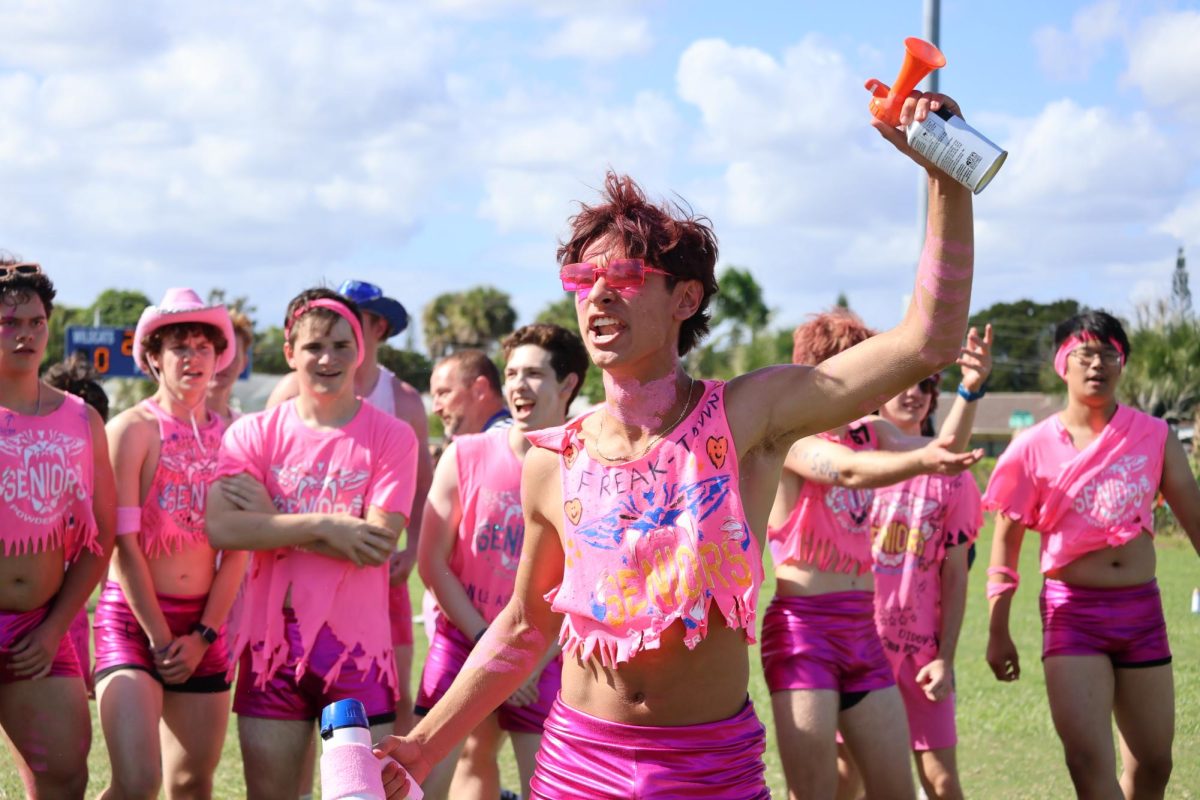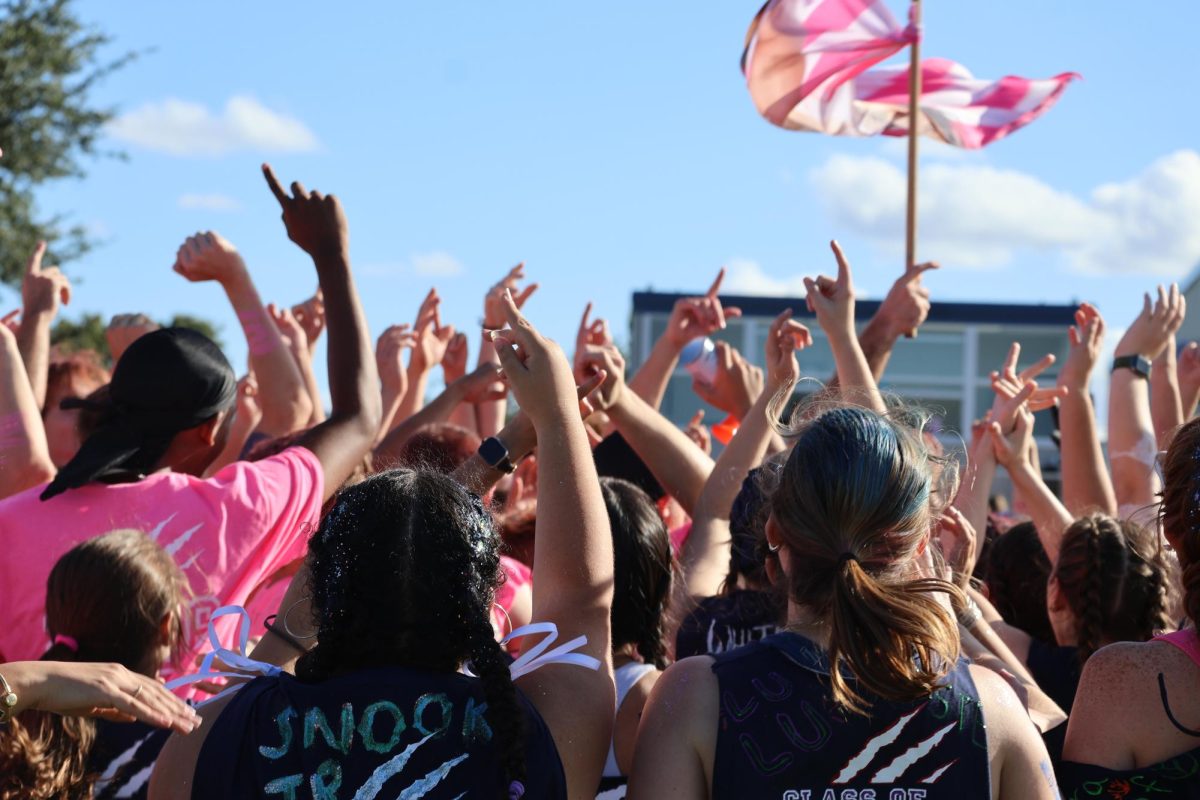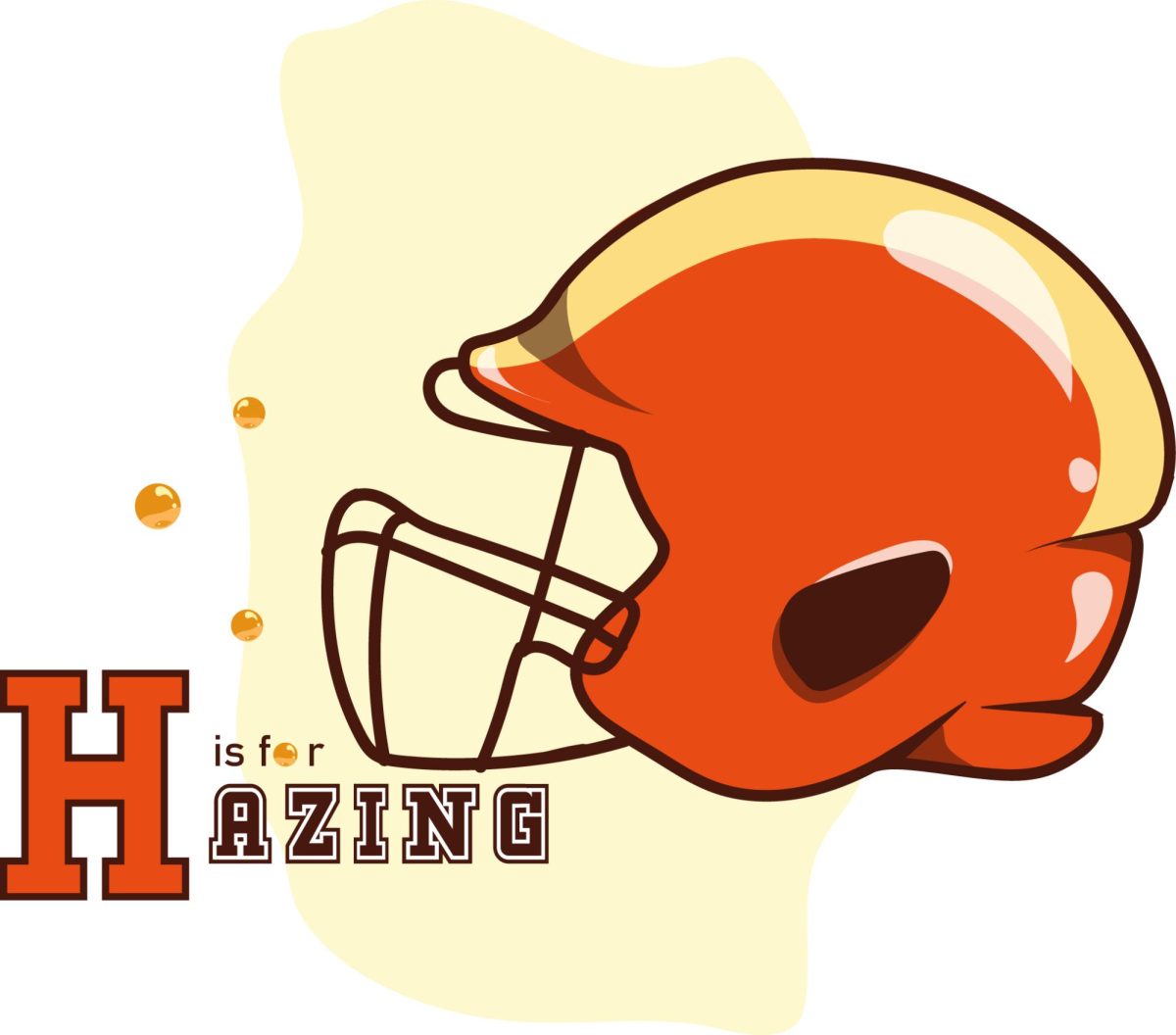A recent act of hazing in a Brevard county high school, Viera High School, went viral August 16. According to USA Today, in a horrifying 41-second video, several students wearing Viera High School’s football gear appeared to be “thrusting and simulating sexual acts” with players on the floor, even attempting to pull down the shorts of one player. The coach was nearby, but not in the same room.
That story went national and was covered over a multitude of platforms. The sheriff’s office has launched an investigation, but not much has come of it. Players responsible were given a suspension. The other players and parents attended a meeting after the hazing incident was revealed, players and coaches took part in an anti-hazing educational program, and the players were engaged during two late-week practices and progress in the investigation. It is absolutely pathetic how much society values football. A fourteen year old boy was sexually assaulted, but the assaulters only get a light slap on the wrist. This kind of permissive behavior is exactly why it happened in the first place.
By allowing a light punishment, the school board is showing their love for the football program over their responsibility for justice. It’s understandable that the whole program should not be punished, however, a few days suspension for those involved is ludicrous. Those involved need more punishment than a few days of suspension for sexually assaulting and hazing someone. For example, in the case of college student Chad Meredith, whose hazers were each required to pay 6.3 million dollars.
Meredith, just three months after becoming a student of University of Miami, drowned in Lake Osceola in 2001. He had been drinking heavily with two Kappa Sigma officers, a fraternity he had expressed interest in joining, and the group decided to swim across the roughly 0.24 mile lake. Meredith had a blood alcohol level of 0.13, and he drowned 34 feet from the shore at a water depth of 6 feet 9 inches.
Four years after his death, the Chad Meredith Act, which outlined general rules of what hazing is considered to be, passed in Florida. Hazing is considered the forcible acts of strenuous, often humiliating, tasks as part of a program usually for initiation. The act is punishable with either a first-degree misdemeanor or a third-degree felony in Florida, depending on how severely injured the hazed victim is. First-degree misdemeanor penalties are the most severe misdemeanors in Florida, with punishments of up to one-year in jail, one-year of county probation and a fine of up to $1,000.
However, not all states have such severe penalties for these horrific acts of “culture.” In fact, in states like Ohio, the punishment is a maximum fine of $750, and the maximum amount of jail time is 90 days.
This is absolutely repulsive, especially considering that Stone Foltz, a student attending Ohio’s Bowling Green State University, died from alcohol poisoning as a result of hazing in 2021. Foltz was put on life support for three days before he died. The eight members of the fraternity Pi Kappa Alpha who hazed him were charged with various charges, including reckless homicide, involuntary manslaughter, hazing and giving alcohol to a minor. Daylen Dunson, the former fraternity president, pleaded guilty to reckless homicide, tampering with evidence, obstruction and eight counts of misdemeanor hazing. He was the sixth person to plead guilty in the case.
The prosecutors said that each of the defendants could face a jail term, but that it was more likely that the defendants would be put on probation. Those eight people are the reason Foltz died, but they had a possibility of getting probation. It is sickening that these eight men did not face significant charges. Two of the men, Troy Henricksen and Jacob Krinn, were sentenced to 42 days of jail time, 28 days on house arrest, 100 hours of community service, and 10 hours of speeches and discussions about hazing. For the remaining five men involved, some were sentenced to jail terms of between seven and 28 days, and all were ordered to spend 28 days on house arrest.
Earlier this year, Foltz’s family settled a three million dollar lawsuit against the university and said they plan to use that money to continue their fight to stop hazing. While it is fantastic that the family got justice, the incident should have never happened and nothing will ever bring back their son.
Some states do not even have laws that either prohibit or define hazing, such as Alaska, South Dakota, Wyoming, Hawaii, Montana, or New Mexico, despite each state having multiple hazing incidents. Such incidents include the Sigma Nu pledge Matthew Cronan in 2010, the six high school freshmen in the Juneau School District in 2014, the waterboarding of a student at Kelly Walsh High School in 2018, the Maui police recruit Alexa Jacobs in 2022, the alleged sexual assault against members of Glacier High School’s wrestling team in 2023, and the sexual assault of two former New Mexico State basketball players Deuce Benjamin and Shak Odunewu in 2023.
Every one of these incidents come down to one of the major problems of the patriarchy: toxic masculinity. Boys are encouraged to display their masculinity at the expense of each other under this system. They do not have to take responsibility for horrific acts of sexual assault or hazing. This mindset, along with the idea of “since-I-did-it-you-have-to-as-well” ruins lives. When authority figures actively show little effort to condemn hazers, this dehumanization continues. This time it was a forty-one second video that was posted, next time it could be several minutes long. Each time the assaulters get a short, insignificant punishment, the more their confidence builds that the acts they commit are not bad, and that the punishment is just for show.
If the students responsible for either the Viera High School hazing or any other had any scholarship money, it should be pulled. Such horrendous acts deserve more punishment than a few anti-hazing training sessions. Their futures should be impacted too. Those students responsible deserve to be prosecuted for their disgusting behavior.
It could be argued that hazing is only being brought to the media’s attention because everyone has a phone now and the incidents can be better documented. However, it is undeniable that hazing incidents are being brought into the spotlight, and something other than anti-hazing lessons needs to happen to decrease the incidents, because that is clearly not working.



![Sophomore Isabelle Gaudry walks through the metal detector, monitored by School Resource Officer Valerie Butler, on Aug. 13. “I think [the students have] been adjusting really well," Butler said. "We've had no issues, no snafus. Everything's been running smoothly, and we've been getting kids to class on time.”](https://westshoreroar.com/wp-content/uploads/2025/08/IMG_9979-1200x800.jpg)

































